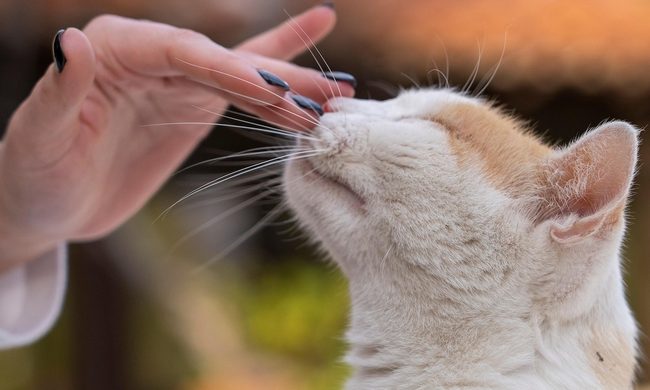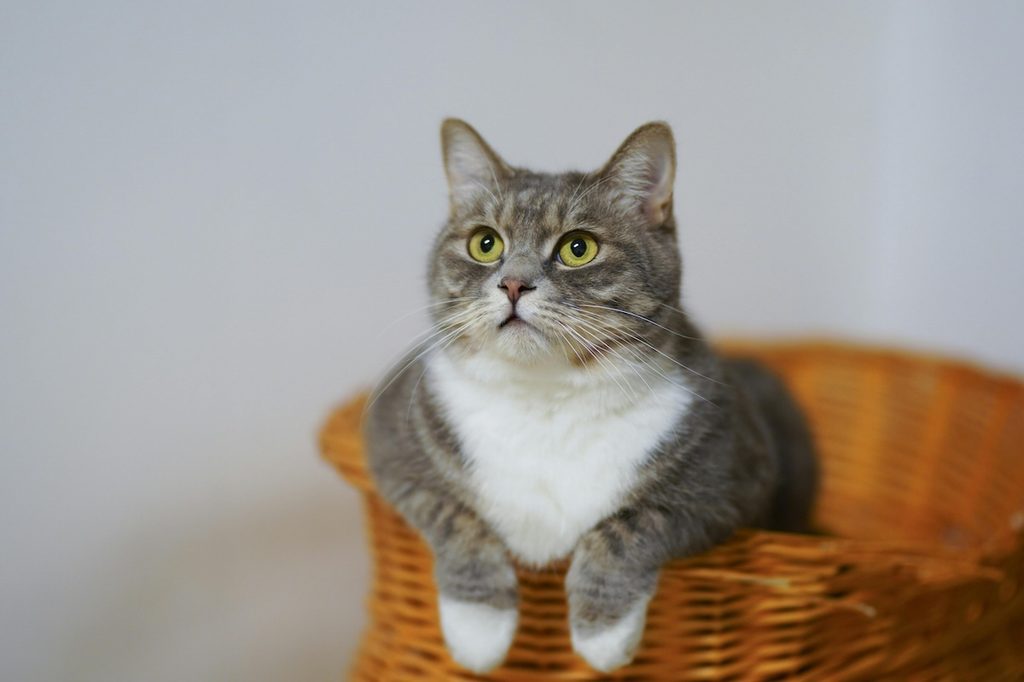
We believe sharing your home with any animal enriches life and makes you a happier, healthier person — and research agrees. But did you know that cats might actually be better for your health than dogs? According to a University of Minnesota study, owning a cat lowers your risk of suffering from a heart attack by an impressive 30 percent, likely more than that conferred by owning a dog, though results of research vary. (Don’t worry, dog lovers. Research shows you’re still happier and healthier than people who don’t own any pets.)
Considering how much your cat improves your health, it’s only fair for you to keep a close eye on her well-being. We’re here to help, so we’ve compiled a list of the most common forms of kitty illness and what you can do to promote cat health.
#1: Monitor your cat’s weight and activity level
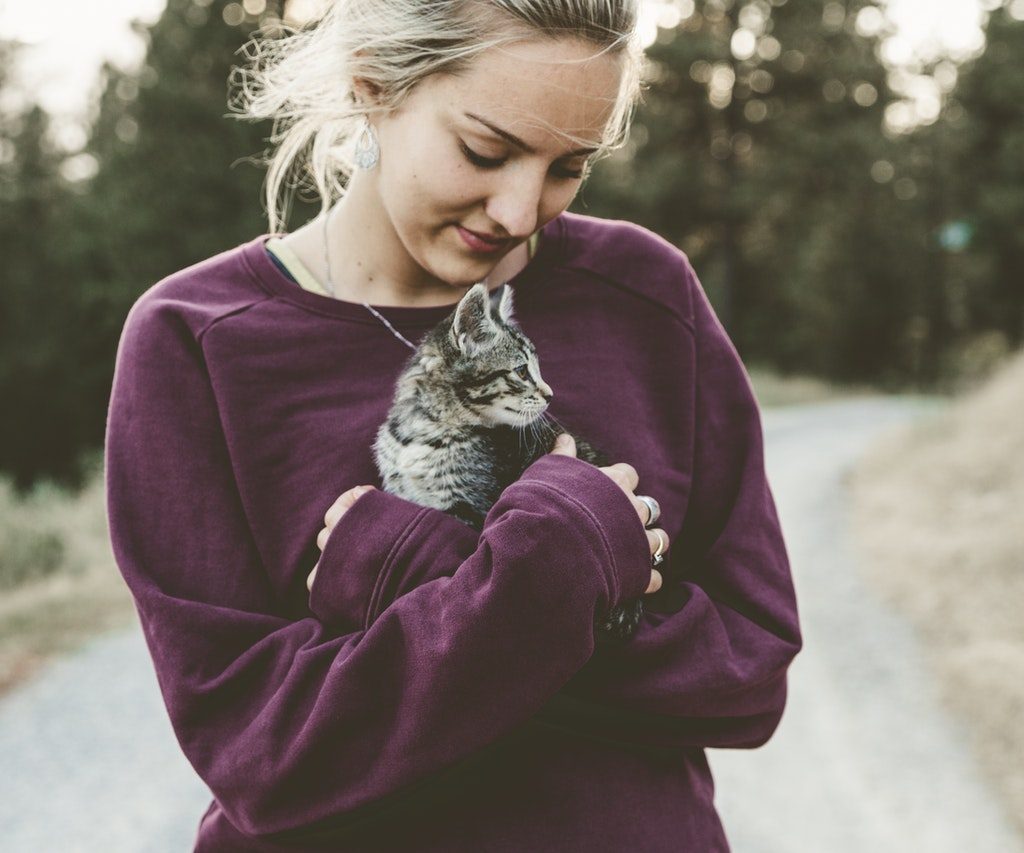
While obesity is more common in older cats, any animal with an imbalance between their diet and exercise level can begin to pack on the pounds. Just like with humans, weight gain in cats is caused by eating more calories than they burn. However, weight gain can also be a symptom of medical conditions like hypothyroidism, and it can be indicative of pregnancy in unspayed female cats.
Cancerous tumors in the abdomen might also be mistaken for weight gain, so we recommend taking your cat in for a checkup if you notice she’s starting to look chunky. Feed your cat a nutrient-dense diet and engage in daily play sessions to help keep her active. Toys and climbing posts, such as cat trees, also encourage your cat to spend more time playing and less time napping.
#2: Keep your cat indoors and away from stray and feral cats
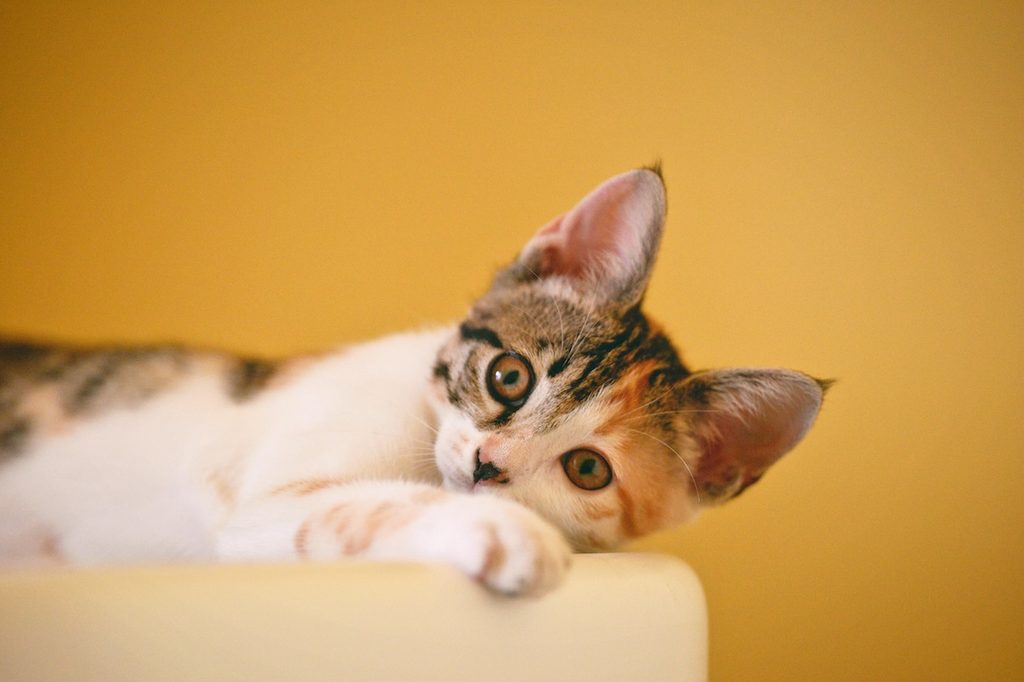
As a cat parent, one of the most frightening diagnoses you can hear is that your cat has feline immunodeficiency virus (FIV). FIV is transmitted via bite wounds from an FIV-positive cat. Contrary to popular belief, the experts at Cornell University College of Veterinary Medicine can offer reassurance: Sharing food and water with an FIV-positive cat isn’t an effective way of spreading the virus.
#3: Watch out for gastrointestinal issues

The occasional bout of stomach upset is no big deal. But if your cat frequently experiences diarrhea or vomiting, it’s time for a trip to the vet. Gastrointestinal distress may indicate a food sensitivity, but it can also be a symptom of a much more serious medical condition: cancer. Although older cats are more likely to develop cancer, it can strike at any age. Other symptoms include lumps, changes in bathroom habits, unexplained wounds, and loss of appetite.
#4: Maintain a clean litter box
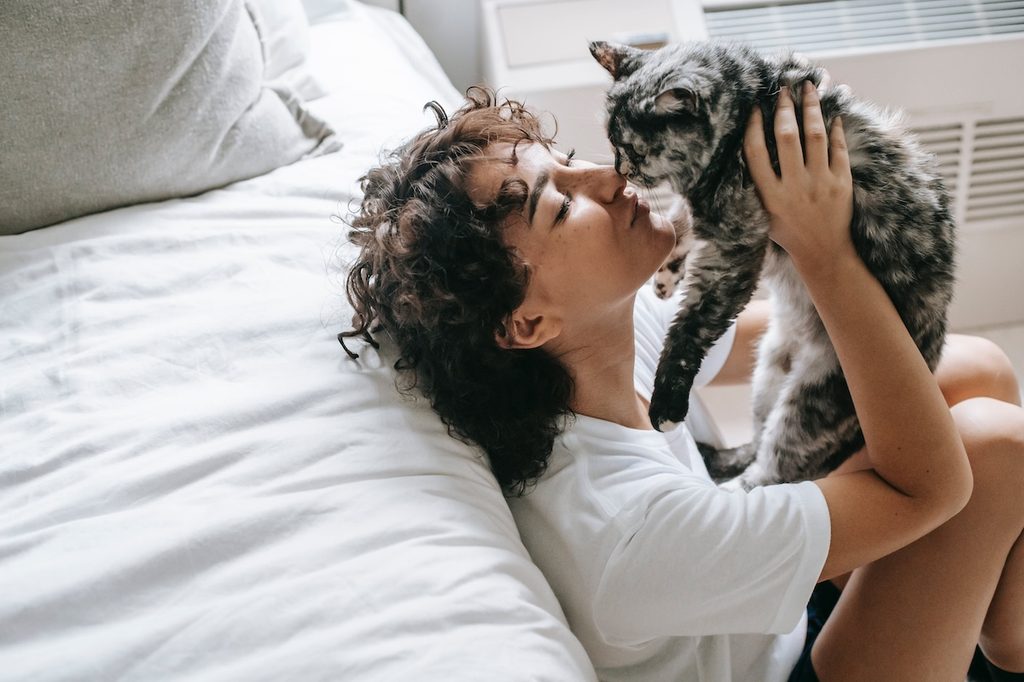
Kidney disease most often strikes older cats – a mere 10 percent of younger cats are impacted – but there are things you can do to help prevent kidney disease. Keep toxins like antifreeze (and toxic plants like calla lilies) out of your home, make sure your cat has plenty of clean water, and keep her litter box as clean as possible. Cats will refuse to urinate in a dirty litter box, and holding her urine can contribute to kidney problems.
#5: Keep a flea-free home
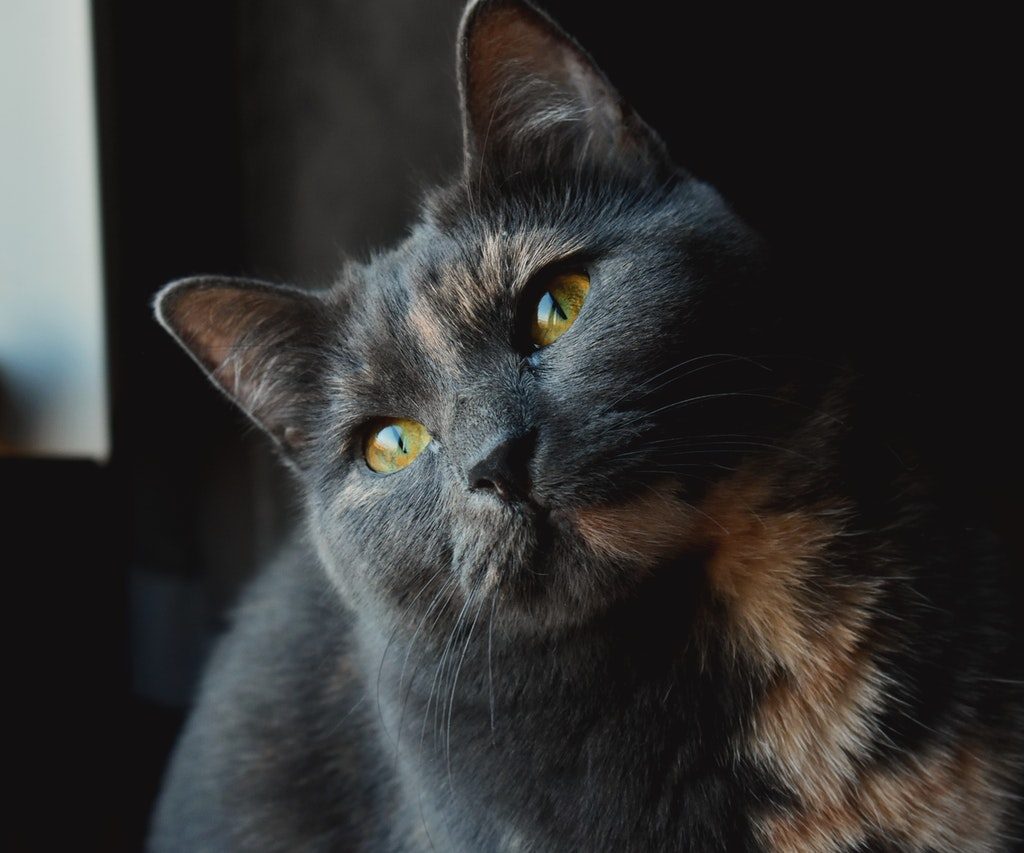
Fleas are one of the most annoying pests in the world. Unfortunately, they’re also one of the most common. Research indicates that the majority of even healthy cats become infested with fleas as kittens. But we have some good news: You don’t have to live with fleas. Using a flea and tick preventative, keeping your cat indoors, and regularly treating your lawn to ward off these pesky pests can allow you — and your cat — to live flea-free.
#6: Be on the lookout for mosquitoes
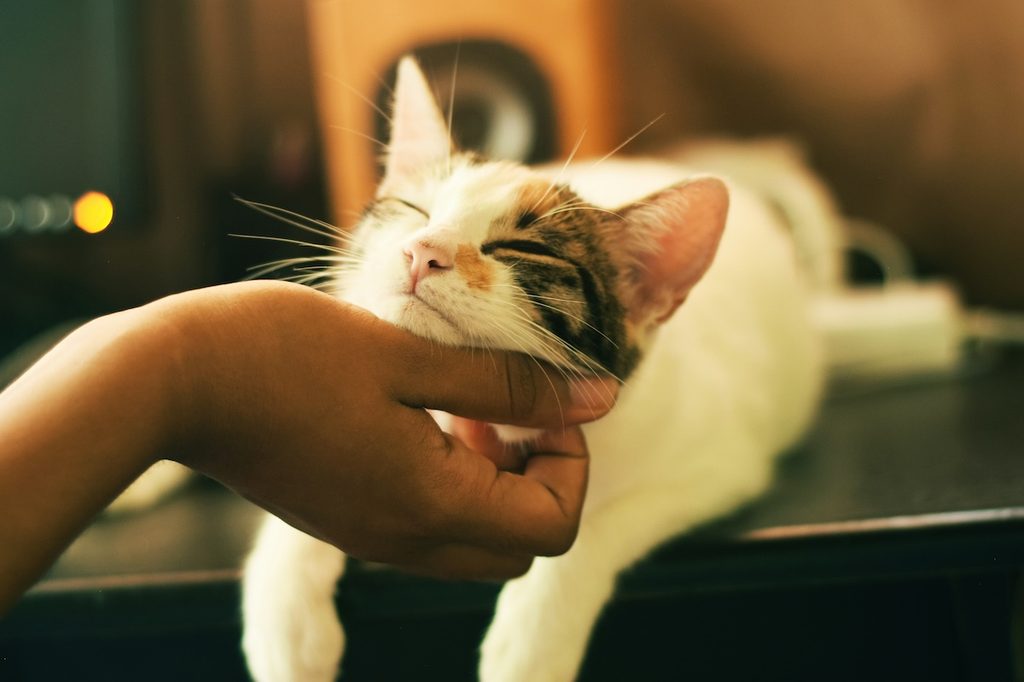
While heartworms are much more common in dogs, studies show that heartworm disease is more prevalent in cats than previously believed. Dishearteningly, around one-third of cats infected with heartworms live exclusively indoors. Transmitted through mosquito bites, infected larvae reach a cat’s heart and lungs, leading to cardiac symptoms like rapid heart rate and pulmonary symptoms, such as chylothorax, a buildup of fluid around the lungs.
#7: Don’t forget to brush your cat’s teeth
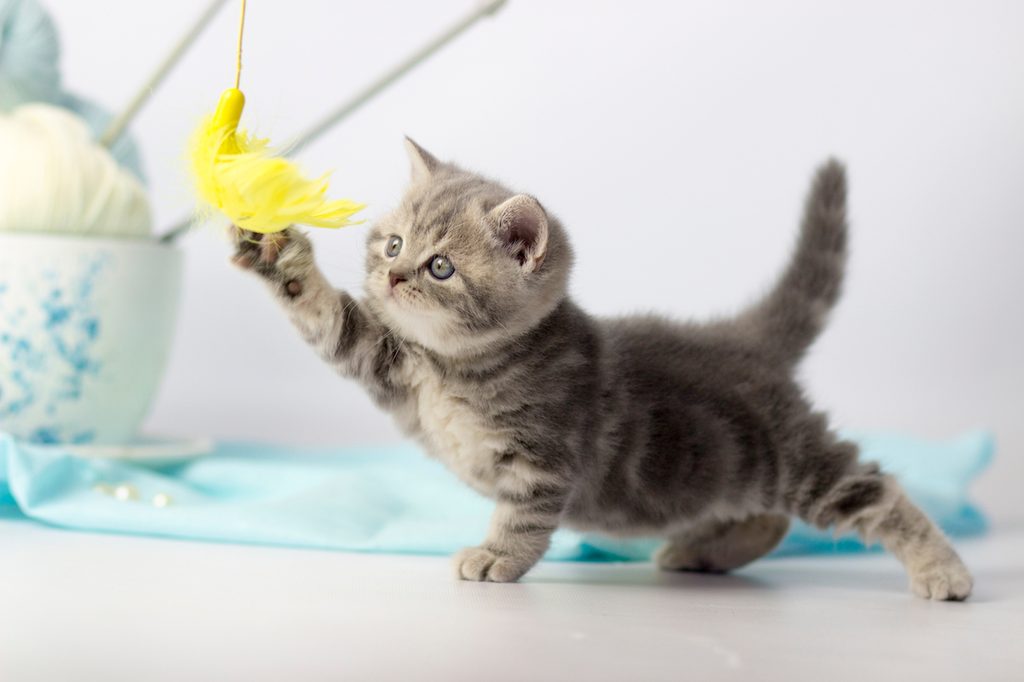
Dental health is crucially important to your cat’s overall health. Worryingly, an estimated 50% to 90% of cats age four and older suffer from some form of dental disease. Regularly brushing your cat’s teeth is the best way to prevent plaque buildup, the root cause of gingivitis. If left untreated, gingivitis progresses into periodontitis, an irreversible condition that can lead to tooth loss and bone loss, and it can even reduce your cat’s lifespan.
#8: Watch your cat’s carb count
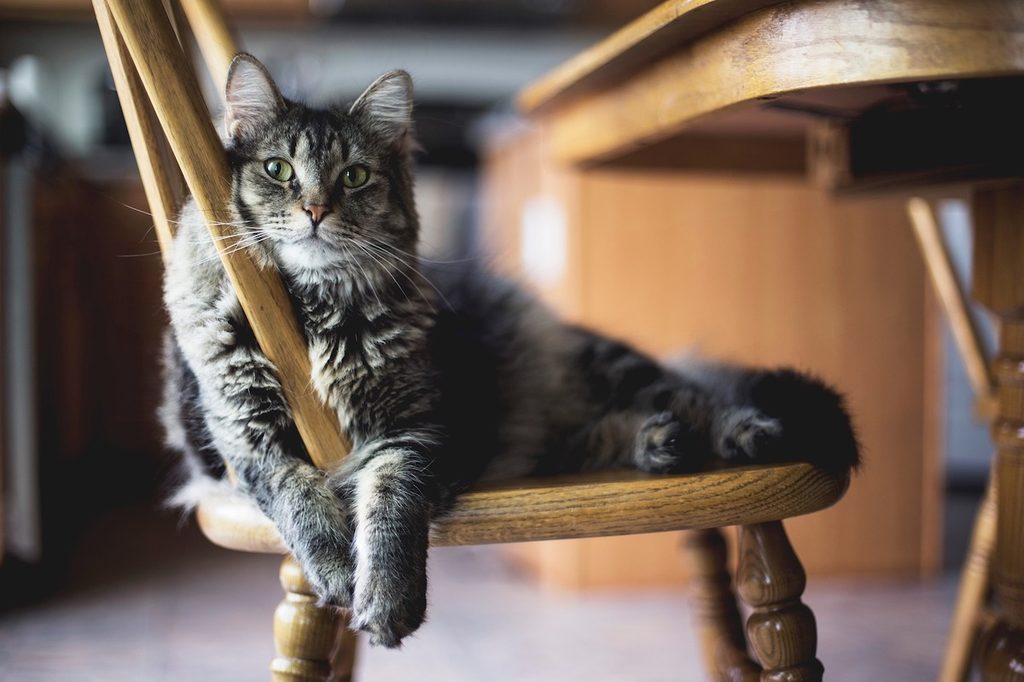
As obligate carnivores, cats aren’t equipped to ingest significant amounts of carbohydrates. Feeding your cat a low-carb, protein-rich diet is essential for your fur baby’s well-being. Not only does a nutritionally dense diet reduce the risk of weight gain, but it also helps prevent diabetes. Canned cat food is typically better in terms of protein, but its higher fat content can lead to weight gain. We recommend consulting a veterinarian to find the most beneficial diet for your cat.
How can I check my cat’s health at home?
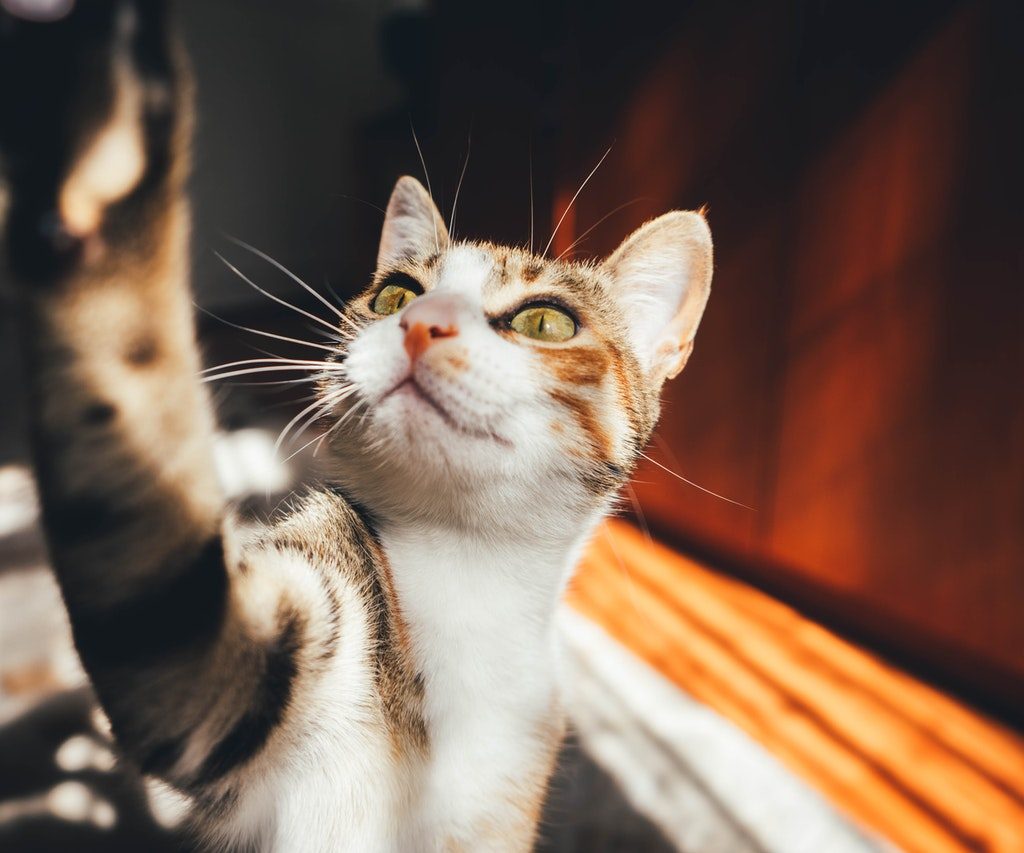
All these tips will help contribute to your kitty’s overall wellness, but you also need to pay close attention to her and make at least annual trips to the vet. It’s good to have a baseline idea of her activity level, sleep schedule, and eating habits so you know when something’s off.
Don’t ignore signs that she doesn’t feel well, such as skipping meals. Many vets will allow you to communicate with them over the phone so you have a better idea when she needs to go in and when she probably just has a tummy ache. Monitoring your pet’s behavior will go a long way to maintaining her health.
Your cat is more than just a furry roommate, she’s also a member of your family. Your feline keeps your feet warm, welcomes you when you come home from work, entertains you when you feel down, and even improves your health. You can give her the same happy, healthy lifestyle if you follow our tips and take your cat to the vet for regular check-ups.



